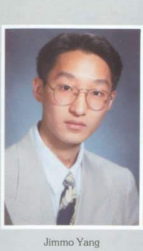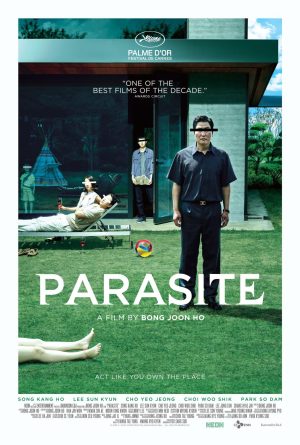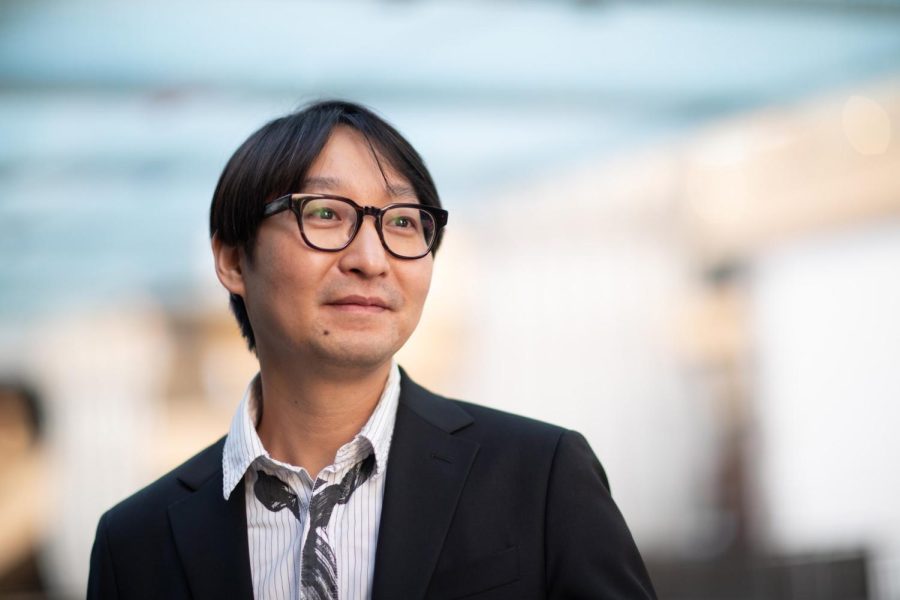Academy Award nominee and East alumni Yang Jin-mo retraces his film-editing career
Yang, who graduated from East in 1995, works as a film editor
Featured in Eastside January 2022 issue
Somewhere along the way, Yang Jin-mo’s (‘95) clear-cut path of becoming a movie director diverged.
In the course of his plan to become a director, he discovered that he had the precision–an intuition for a detailed outlook– to manipulate movie frames and to weave raw footage together into a live story of profound impact.
Yang did not know that 26 years after graduating Cherry Hill East, he would be a well-known film editor and an Academy Award nominee for best film editing for his work on Parasite. No one did.
As a teenager, Yang immigrated to the US, following his mom’s footsteps in the hopes of a better life in America. They first lived in Brooklyn, NY, close to relatives in the area. Then, they relocated to Collingswood, where his uncle owned a Dunkin Donuts. After multiple moves along the East Coast, they eventually settled in Cherry Hill where Yang attended East.
As a shy student and new immigrant who could not speak English very well, Yang felt out of place.
“It was very difficult for me, because I was such a foreigner…I was not that talkative or good at English,” said Yang.
It was hard for him to find a community at school. The cafeteria, with its huge crowds, did not appeal to him, so he sought a safe place. He found solace in the F wing–more specifically, in the Commercial Arts classroom. Instead of eating lunch in the cafeteria, Yang spent his time tucked away in that classroom, getting lost in graphic design and exploring his passion for art. That passion would soon grow into a deeper love for filmmaking.
Today, more than 20 years after graduating from East, Yang distinctly remembers his Commercial Arts teacher, who provided him with the support and guidance that encouraged his exploration for art.
Shortly after Yang’s art talent was discovered, he was offered an opportunity to illustrate for Eastside. He became Eastside’s official cartoonist and joined its homeroom. There, he thrived in pouring all his creativity and passion into drawing for the newspaper.

“I was very, very lucky to get into Eastside. I felt like I was chosen,” said Yang.
Yang felt that drawing was a haven for him, but he also knew that ever since his childhood he had been fascinated with animations. Hoping to intermingle his two passions, Yang attended Bard College to study filmmaking after graduating from Cherry Hill East.
However, attending college wasn’t completely smooth sailing. Facing financial hardships, Yang had to pause his college education after his freshman year to work and save money for his tuition.
“I just did everything possible that [could] get me money. Just work, and work, and work,” said Yang.
He worked long, tiring hours and multiple jobs: a delivery man for a Korean bookstore, a waiter at a Korean restaurant, and a merchandising manager at a jewelry store.
Despite the painful hours that overwhelmed him sometimes, Yang had an unyielding drive — one that kept him going.
“I had just one aim back then: going back to school,” said Yang.
Perseverance kept him focused and firm in his resolve. His hard work and determination helped him accomplish his goal. Despite the fatigue and the exhaustion from work, he eventually saved enough money to pay his tuition and was able to continue his education at Bard College.
After graduating from Bard, Yang needed to figure out what he wanted to do with a degree in filmmaking. His passion led him towards becoming a director, and Yang came up with a master plan to accomplish his goal.
He would first work as an onset editor, which would provide him with many valuable opportunities to learn from the director, and hopefully would bring him to his ultimate goal of becoming a director.
He started with a job as an onset editor for the 2005 movie Duelist, the very first film he worked on in Korea.
The movie atmosphere was exhilarating for him.
“Just going into the production itself as an editor was such a powerful memory,” said Yang.
At some point while working as an onset editor, though, the trajectory of his career completely changed. Yang discovered the essential role of film editing in shaping the final version of a movie. The work of creative and effective editing could reconceptualize the scripted version of a film’s story and turn it into something impactful— something capable of touching an audience’s deepest emotions and memories, bringing laughter and tears, and delivering a profound message.
It was tiring and probably the most under-celebrated aspect of the filmmaking process— editing the footage can span many rounds of shaping and fine tuning before completion.
However, Yang found a deep sense of satisfaction and accomplishment in nuancing the many shades of interpretation within a film and helping the audience to resonate with these themes.
“Editing a movie is like a Lego block… and I’m the one who combines the pieces. It becomes an art and has a story,” he described.
Yang devoted his passion and creative effort into film editing, with a few of the films he worked on including Train to Busan, Okja, and Snowpiercer.

In 2019, Yang brought his extensive professional experience in editing to Parasite, a film that seamlessly tied together several genres of thriller, drama, and suspense— all in Korean.
Yang had worked with Bong Joon-Ho, the director for Parasite, in the past, on the 2017 international film Okja, and they decided to keep Parasite in Korean.
“We didn’t want to worry about English subtitles or anything,” said Yang.
Although it was easier to maneuver the film in Korean, Parasite posed a certain challenge for Yang.
“It was difficult finding the right pace for the movie,” he said.
This was in part due to the director’s filming method and style— there was just not much spare footage to sift through.
“[Bong Joon-Ho] makes movies in a very efficient way,” explained Yang.
Thus, each piece of footage was crucial in the formation of the movie. Yang had to seamlessly assemble each segment of raw footage with the next, finding a rhythm that allowed the scenes to coherently flow together — intermixing emotion, tension, and mystery in the right shots.
The international acclaim his editing work on Parasite received from its audiences was astounding. Yang was also nominated for the Academy Award for best editing which further propelled him into the spotlight.
“Parasite changed my life,” said Yang.
The recognition was wonderful to receive, but his favorite part of his work on Parasite was connecting with the many talented individuals in the field.
“I can make connections with people on set and work with them in the future, whether they are a musician…or artist,” said Yang.
Nowadays, Yang is not an onset editor. Instead, he receives the footage at his editing suite and works there.
“[Being a director] was my masterplan, but I found a different path,” said Yang.
At present, Yang lives with his wife and mother-in-law in Korea, but a part of him still reminisces on his time at East.
“I miss my teachers. They would be very, very proud of me because they knew I was shy, but for some reason, they believed I would be somebody,” said Yang.
From a newly immigrated student taking refuge in the Commercial Arts class at East, to one of the most prominent film editors in the movie industry, Yang has finally found his path.
Twenty-six years after graduating, his time at East has served as a cornerstone for his decision to go and make his mark in the film industry.
Going all the way back to the F wing of East, Yang can trace his career path back to that Commercial Arts classroom, where his teacher first sparked his love of art and ignited his passion for pursuing it.



